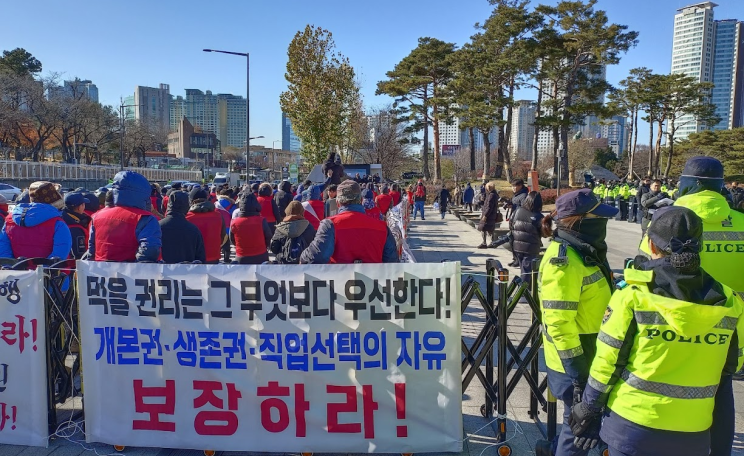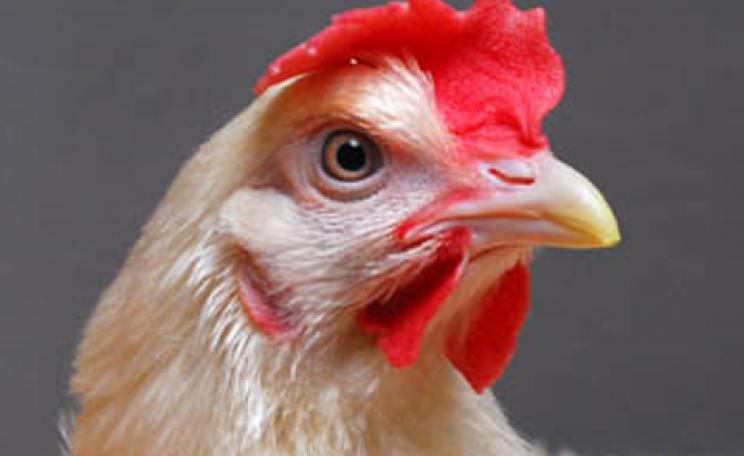At Animal Equality we have been carrying out investigations inside the meat industry for more than a decade. And the response of the sector has always been the same: 'They are isolated cases'. This answer will not do. We are tired of so many isolated cases.
If you ask any representative of the Spanish meat industry what day they had their worst nightmare, they would probably tell you that it was the night this month that investigative TV programme Salvados exposed the meat industry in Spain. It showed devastating scenes of animal suffering recorded on a farm supplying meat giant El Pozo – a brand stocked by supermarket chain Morrisons, Amazon, and other UK retailers.
They filmed numerous animals suffering from infected abscesses and giant hernias throughout the farm, which housed around 900 pigs (very small by British standards). There were several with severe deformities, and some with weeping ulcers covered with flies and larvae.
All of these animals were in an advanced state of ill health and were clearly suffering – all without adequate veterinary care. They also found animals living in pens with corpses in an advanced state of putrefaction, and animals unable to stand being trampled and cannibalised by other pigs. These were truly some of the worst conditions ever uncovered on a farm in Europe.
Working incognito
The head of Spain’s national pig farming lobby Interporc sent a letter to the Minister of Agriculture, Isabel García Tejerina, requesting help to defend the interests of the pig sector - four days before the broadcast of the programme on national TV. Such was the fear amongst meat industry bodies.
The call for help was answered by the minister, who appeared on TVE on Tuesday, February 6 and declaring that Spain’s pig industry is a world leader in animal welfare. And - the most scandalous of all - admitting that she had not seen the programme. I imagine that's why El Pozo refused to participate in Salvados: why send a representative on the programme if the minister can speak for them?
On the other hand, El Pozo's response to this complaint will be studied as an example of what should not be done in the face of a brand crisis. They attacked the programme in which they had refused to participate. They did not acknowledge any responsibility for the scenes recorded on the farm. They accused Jordi Évole, the journalist who made the programme, of manipulating the images, saying that these animals were in an isolation area.
The managers of El Pozo have a somewhat peculiar notion of what an isolation area is. Many of those animals were dying, sharing a pen with other healthy animals. There were animals eating each other, animals with open wounds that had not received veterinary attention for weeks, as confirmed by the veterinarians consulted by the programme. The owner of the farm confirmed in the programme that they were integrated into Cefusa, a supplier company of El Pozo, and that it was a farm for human consumption.
At Animal Equality we have been carrying out investigations inside the meat industry for more than a decade. And the response of the sector has always been the same: 'They are isolated cases'. This answer will not do. We are tired of so many isolated cases.
That the meat industry has long shadows is something already revealed at the beginning of the twentieth century by Upton Sinclair in his classic, The Jungle. After weeks working incognito in slaughterhouses of Chicago, he revealed the slavery to which the migrants were subjected, and exposed as never before the unhealthy practices of the industry.
Ministers and spokespeople
The impact of the work was of such magnitude that it led to a Roosevelt investigation, which ended with the approval of the Pure Food Legislation. Although more than 100 years have passed, it seems that the essence of the monster portrayed by Sinclair is still untouched: labour exploitation, animal abuse and terrible environmental impacts.
At Animal Equality we have been carrying out investigations inside the meat industry for more than a decade. And the response of the sector has always been the same: “They are isolated cases”. This answer will not do. We are tired of so many isolated cases.
I have been inside hundreds of farms in my life. I have seen firsthand the hell that these animals endure, condemned to a miserable life to be turned into cheap meat. This time we as a community were with Jordi Évole inside that farm. He did not come alone. He was accompanied by the millions of people who watched the programme. This is what makes the meat industry tremble.
No matter how much money they have to pay in advertising and ministers to be spokespeople in the media, the crack that has been opened will never be closed again. Nothing will be the same again.
This Author
Javier Moreno is the executive director of Animal Equality Spain.
Right of Reply
A Morrisons spokesman said: "The welfare of animals is extremely important to us. The images in this video are deeply distressing and we are concerned to see the condition of these pigs. El Pozo have been clear that they stopped taking any animals from this farm last year."




